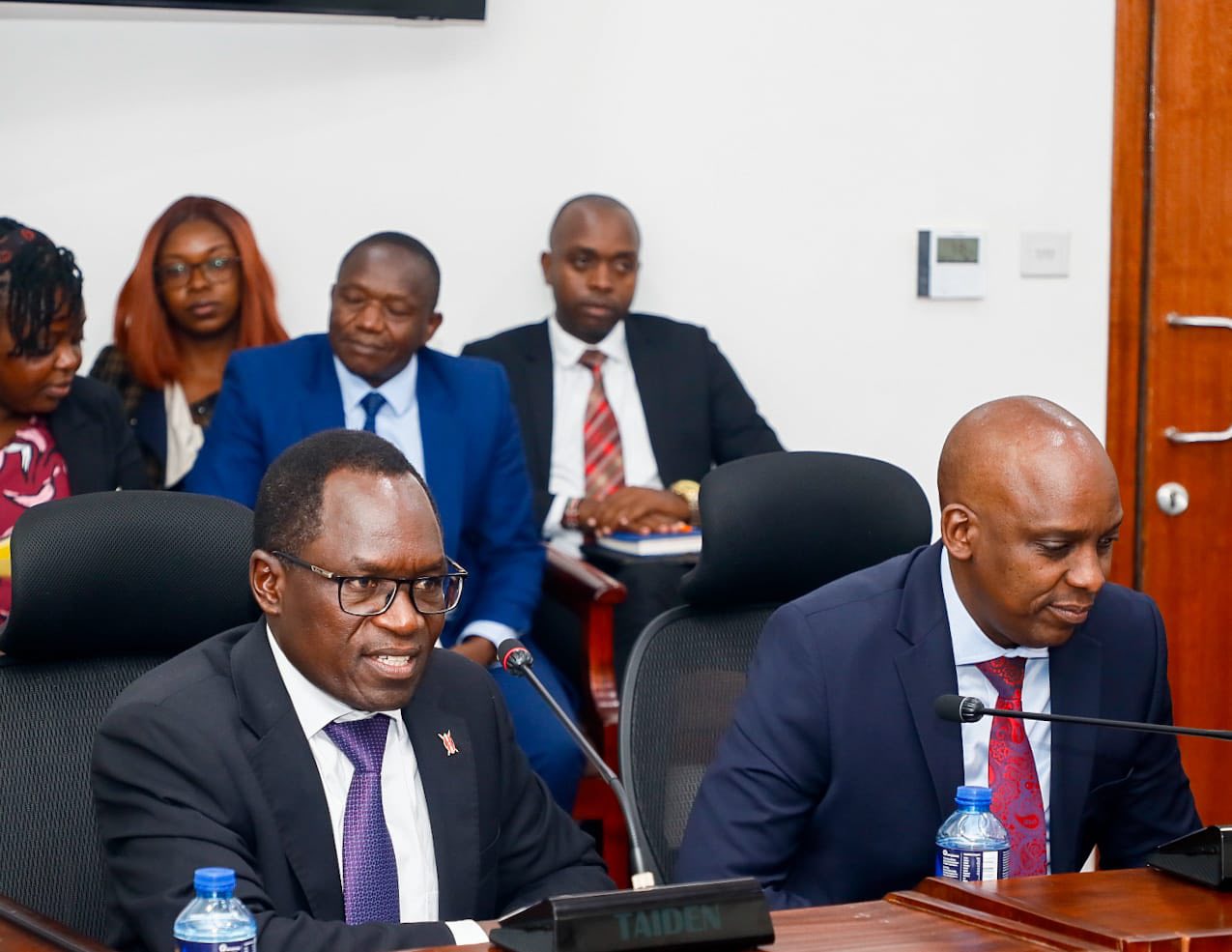 ICT Principal Secretary Stephen Isaboke (L) and CA Director General David Mugonyi appear before the Senate Committee on Energy on November 4, 2025. /PARLIAMENT
ICT Principal Secretary Stephen Isaboke (L) and CA Director General David Mugonyi appear before the Senate Committee on Energy on November 4, 2025. /PARLIAMENTThe Ministry of Information, Communications and the Digital Economy has cautioned that proposed changes to the Energy Act could disrupt Kenya’s broadband rollout and raise the cost of digital infrastructure projects.
ICT Principal Secretary Stephen Isaboke said the plan by counties to levy charges on public energy infrastructure without approval from the Energy Cabinet Secretary would have “serious and far-reaching implications” for national connectivity initiatives.
The ministry warned that the proposal would fragment regulation, delay project implementation, and drive up costs for key programmes such as the National Optic Fibre Backbone Infrastructure (NOFBI) and the Last Mile County Connectivity Project (LMCCP).
“While the ministry supports devolution and recognises the importance of empowering county governments, the proposed amendment would undermine national cohesion and efficiency,” Isaboke said on Tuesday while appearing before the Senate Committee on Energy, chaired by Oburu Oginga.
He was accompanied by David Mugonyi, the Director General and Chief Executive Officer of the Communications Authority of Kenya (CA).
During the session, Nairobi Senator Edwin Sifuna urged the ministry to ensure counties benefit from revenues generated through ICT infrastructure mounted on the Kenya Power transmission network.
“The PS should collect the revenue from ICT infrastructure on the Kenya Power line network and give it to counties,” Sifuna said, adding that the ministry should disclose how much telecommunications firms pay for using public infrastructure.
Senator Boni Khalwale backed calls for fairness, saying both levels of government should benefit from infrastructure-related income.
“Why can’t we provide a level playing field for both national and county governments so that the two levels of government share the benefits?” he asked.
Responding to the lawmakers, Isaboke defended the current centralised revenue model, saying it ensures equitable redistribution through the national system.
“Centralisation of revenue from the Kenya Power line network helps in pooling resources together. County governments then get the revenue as shareable resources,” he explained.
Pauline Kimotho, legal counsel for the ICT Ministry, said devolving such charges would create inconsistencies.
“The issue is the unpredictability of levies from different counties. We need harmonisation and a standard rate for each county,” she said.
Technology Service Providers of Kenya (TESPOK) chief executive Fiona Asonga called for a friendlier regulatory environment, urging the Energy Ministry and Epra to introduce “a special tariff for the telecommunications and data industry—just like the special tariffs extended to the manufacturing sector.”
The ministry stressed that both energy and communications regulation are national functions under the Fourth Schedule of the Constitution.
It said allowing counties to impose independent wayleave fees could trigger legal conflicts and breach Articles 186 and 209(5), which prohibit county taxes that harm national economic policy or cross-county investments.
It further noted that the proposed amendment contradicts national frameworks such as the Digital Economy Blueprint (2019) and the Strategic Plan (2023–2027), both of which emphasise harmonised and affordable infrastructure development.
“Uncoordinated levies would inflate broadband costs, delay rural connectivity, discourage private investment and ultimately raise consumer prices for digital services,” the ministry warned.
To avert disruption, it proposed a joint policy framework between the Energy and ICT ministries and the Council of Governors to standardise wayleave charges and clarify roles across government levels.
It also called for a Regulatory Impact Assessment before the amendment is enacted to determine its financial and operational consequences.
“The amendment may boost county revenue in the short term, but it would destabilise the national framework for ICT deployment, drive up project costs, and delay broadband expansion,” the ministry concluded.


















